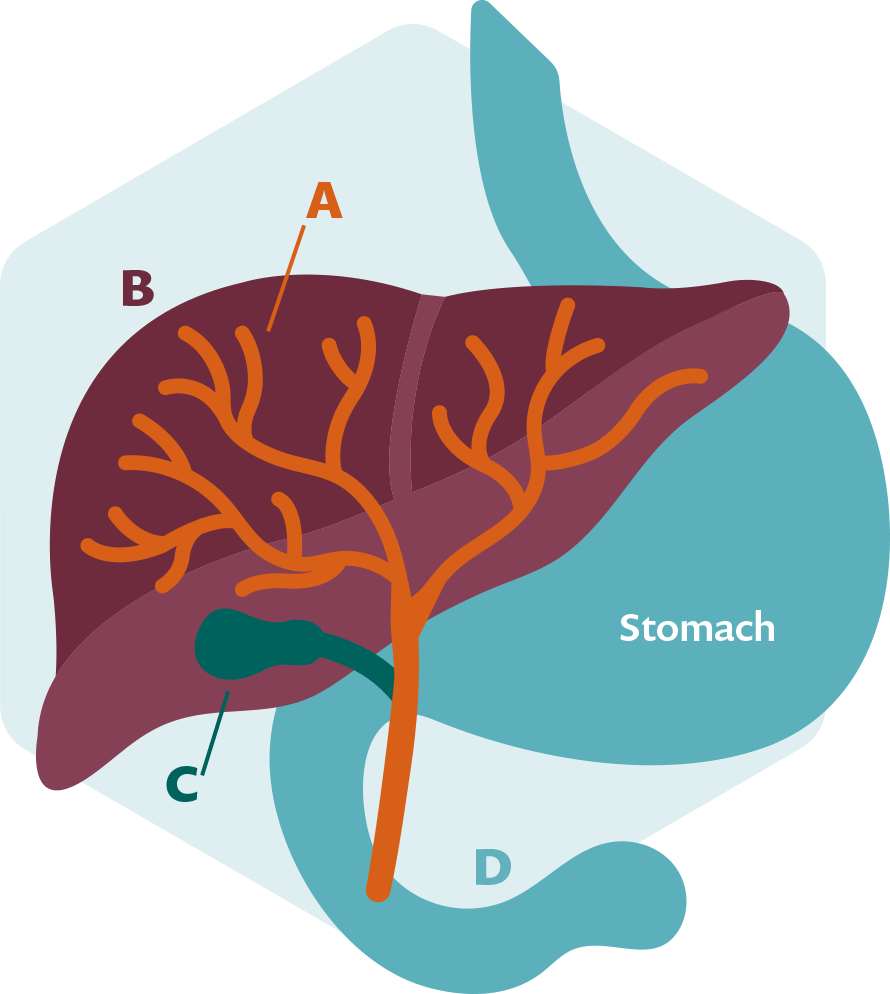




Bile ducts (A) are the thin tubes that connect your liver (B), gallbladder (C), and small intestine (D). Their job is to carry the digestive fluid known as bile, which is made in your liver and helps break down fats.

In most cases, CCA starts in cells lining the bile ducts. Your cells’ genes , which are instructions for growth and repair, change abnormally. This causes the cells to grow and divide without stopping.
These cancer cells may form solid growths called tumors. Over time, some cancer cells can break off from the tumor and spread to other parts of the body. This is called metastatic cancer.

Doctors divide cholangiocarcinoma, or bile duct cancer, into different types based on where it occurs. The location of CCA may affect how it is managed.
Intrahepatic means the cancer affects the bile ducts inside your liver.
Extrahepatic means the cancer affects the bile ducts outside your liver, nearer to the intestine.







What Are the Benefits of Molecular Profiling in CCA?
Molecular profiling is a test healthcare professionals use to identify unique characteristics of cancer cells, including abnormal genes or gene defects. This information may help your healthcare team decide how to care for your CCA.
When you undergo molecular profiling, your healthcare professional may be able to identify certain DNA changes, also called genomic alterations, that are specific to your tumor. This information may help your healthcare team decide how to care for your CCA.






Overall, CCA is not a common type of cancer. In fact, CCA accounts for only 3% of all gastrointestinal cancers.
CCA appears mostly in people over 60 years of age, and it occurs slightly more often in men than women.
Having certain gastrointestinal, bowel, or liver diseases, or obesity—as well as exposure to certain chemicals—may increase the risk for CCA.
Most people with CCA do not have any symptoms until the disease reaches an advanced stage. For this reason, it is difficult for healthcare professionals to diagnose the disease early.





